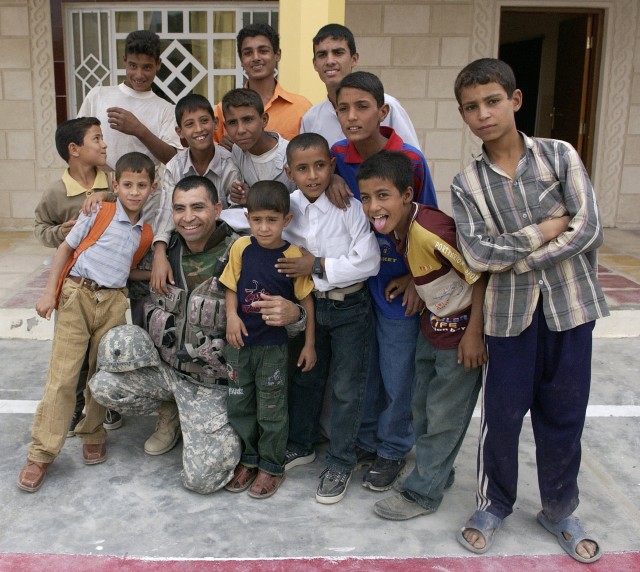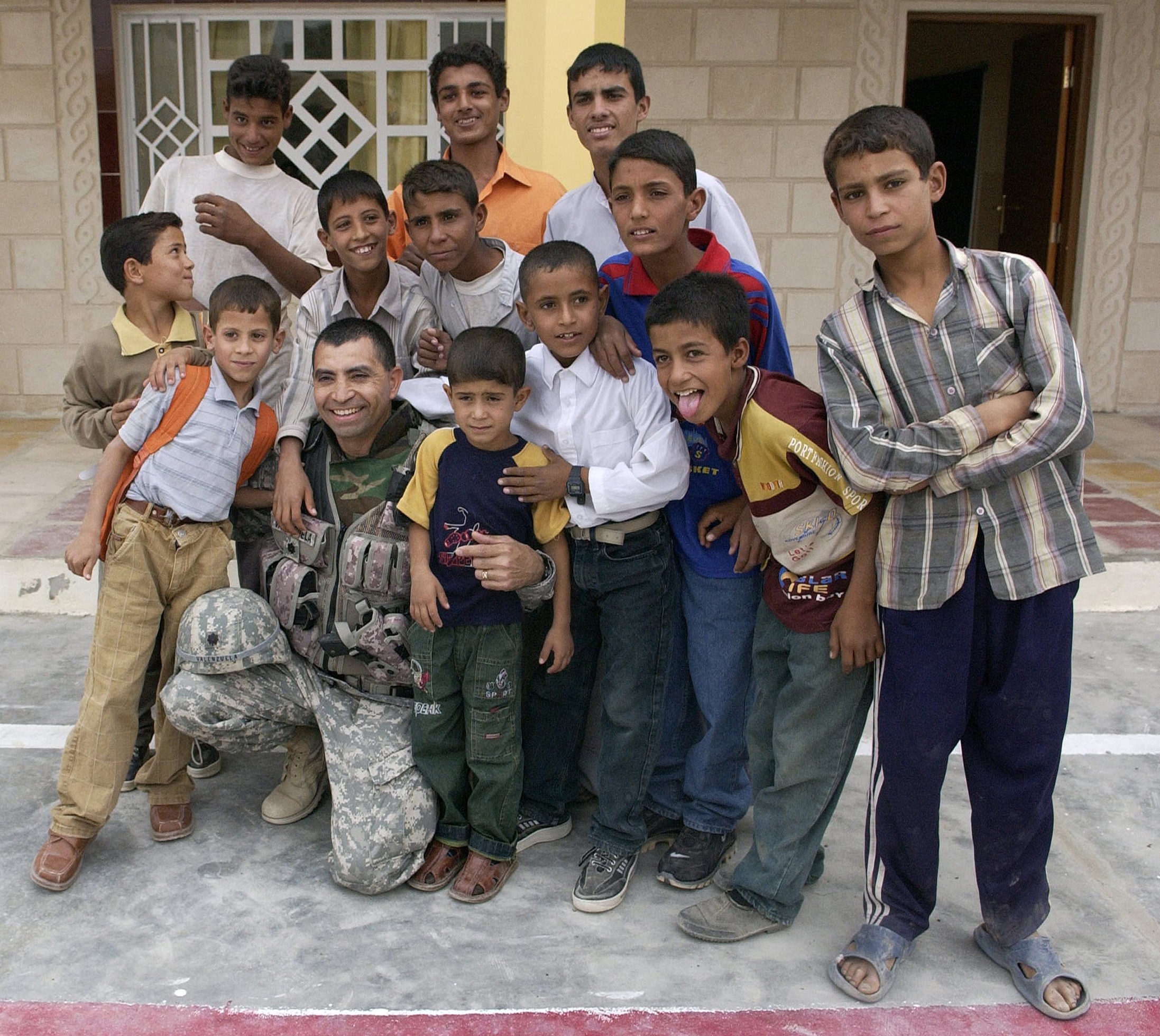
WASHINGTON (American Forces Press Service, Feb. 28, 2007) - Americans need to hear and see more about reconstruction in Iraq to fully understand the situation there, the general in charge of Army Corps of Engineers efforts in the Persian Gulf region said today.
"We see successes in the U.S. government's construction program here" every day, Brig. Gen. Michael J. Walsh, commander of the Corps of Engineers Gulf Region Division, in Baghdad, said during a news conference there.
He said the U.S. effort is putting in essential services, often in places that never had them.
Walsh helps oversee more than $22 billion worth of U.S. taxpayer money going to reconstruction. "This money was to jumpstart the Iraqi economy," he said.
In 2003, the World Bank estimated that Iraq needed between $60 billion and $80 billion to address infrastructure shortfalls from the Saddam Hussein regime. The U.S. contribution was to lay the foundation the Iraqi government can build on, Walsh said.
The basic services being built are facilities Americans take for granted: access to medical facilities, fire stations, neighborhood schools, paved roads, clean water, sewage treatment, irrigation, and so on. On any given day the Gulf Region Division is working on approximately 1,100 projects across the country, Walsh said.
"The vast majority of these projects are on track and good solid construction and meeting the deadlines we have set," he said. "If there is only one percent of those 1,100 projects that are troubled, that's only 11 projects and it's those projects that tend to spotlighted, and that's not fair to the American taxpayers or the reconstruction efforts that are under way.
"I am proud of the efforts of our team in the military, defense civilians, contractors and Iraqi associates continue to put forth in increasing the services," the general continued. "We have set our goals. We keep track of them, and we are going to meet them."
A laundry list of projects includes building 10,045 schools in the country, completing 154 border forts, completing 92 of 97 planned fire stations. The district is funding 34 post office projects, and officials are renovating 102 railroad stations.
"Americans should hear of the current 989 projects where we are advancing and enhancing the lives of the Iraqi people," Walsh said. "Americans should see the photos of Iraqis being educated in clean, safe learning environments or playing in newly built youth centers. Americans should see in the infants being cared for in modern medical facilities that previously did not exist."
As an example, the general discussed the electrical situation in Iraq. Prior to March 2003, "much of Iraq received four to eight hours of power a day, with Baghdad receiving 16 to 22 hours of power," he said. "Today, electricity is distributed much more equitably around Iraq with much of the country receiving 10 to 12 hours of power."
He said Baghdad remains a problem, receiving six to seven hours of power daily. "To understand electricity, we must understand the whole picture," he said. "After the war ended in 2003, demand for power rose 32 percent. At present, we estimate that demand for power has risen more than 70 percent since 2003. People are able to buy more items: washing machines, televisions, air conditioners. However, it means we must continually add capacity to the Iraqi system. We find ourselves constantly chasing increasing demand."
He said the U.S. goal was never to produce 24 hours of power, but to update and stabilize the Iraqi national grid. However, security concerns have caused problems with more than 17,000 kilometers of transmission lines that are often insurgent targets, he added.
Walsh said the first new hospital in Iraq since 1986 will open in 2008. The Basra Children's Hospital is a 94-bed facility that will focus on acute care and oncology. The facility will provide accommodations for physicians and nurses, outpatient examination rooms, a pediatric intensive care unit as well as four general pediatric wards.
"Currently, Iraq's ability to care for its most seriously ill children is virtually nonexistent," Walsh said. The hospital will partially address that lack.
The cost of these reconstruction efforts is high, not only in money, the general said. "We have lost good people and had setbacks due to the insurgency and security difficulties," he said. "But we still have completed more than 3,000 projects to help the country of Iraq to jumpstart its economy and solidify its infrastructure."

Social Sharing